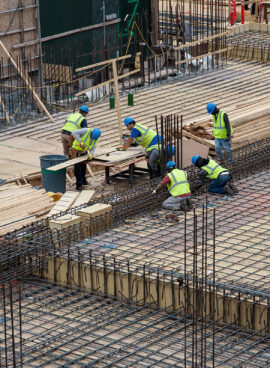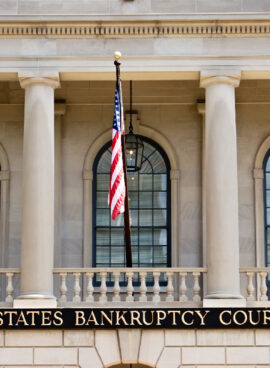Fires, Tariffs and Price Escalation Clauses
The California fires and the tariffs imposed by the Trump Administration, both occurring in the first quarter of 2025, will have profound impacts on the construction industry. How can you brace for the coming storm of highly variable costs for labor and materials?
As Hurricane Katrina and the COVID-19 pandemic taught us, natural disasters can cause immense disruptions to the construction supply chains. In 2005, Katrina caused significant disruptions in the supply of petroleum-based products, drywall, and other construction materials. And, during the COVID-19 pandemic, a reduced work force and
Extrinsic Evidence not Allowed to Determine Duty to Defend
In the ongoing interpretation of the Monroe factors that allow, under limited circumstances, extrinsic evidence to be introduced in determining whether an insurer owes a duty to defend, yet another court has determined that such evidence was inadmissible under the specific facts of the case. In Hudson Excess Insurance Company v. Flipp Oilfield Services, LLC and Joshua Galatas, the United States District Court for the Southern District of Texas held that extrinsic evidence was not admissible in determining whether an insurer owed a duty to defend its insured in a lawsuit brought by the insure
$22 Million Award under Prompt Pay Act Reversed
Does the Texas Prompt Pay Act (PPA), requiring prompt payment of contractors involved in construction projects, apply to construction of a natural gas facility intended to extract propane, butane and other natural gas liquids (NGLs) in a midstream capture process? The Houston Court of Appeals, First District, in Arrow Field Services, LLC v. Linde Engineering North America, Inc, recently held, no.
Arrow Field Services, LLC (Arrow) is a midstream company located in North Dakota which acquires and processes natural gas to extract NGLs. Linde Engineering North America, Inc. (Linde) provides constr
$1.3 Billion Lawsuits Dismissed due to Waiver of Subrogation Clause
In November, 2024, a U.S. Bankruptcy Judge in Houston dismissed two lawsuits filed by several insurance companies against Zachry Holdings Inc. and its joint venture partners, ruling that the waiver of subrogation clause in the construction contract barred the lawsuits, robbing the insurers of standing to sue.
Shortly after Zachry filed bankruptcy in May 2024, the insurers filed the lawsuits arising out of a June 2022 explosion at the LNG Freeport liquified natural gas facility located on the Gulf of Mexico. According to a report issued by the U.S. Pipeline and Hazardous Materials Safety Admini
Developer Does Not Owe Duty to Prevent Flooding from Hurricane
Does a land developer owe a duty to set minimum slab elevations to prevent flooding during a foreseeable weather event? In Jason Alexander, et al. v. The Woodlands Land Developer Company L.P., The Howard Hughes Corporation, LJA Engineering, Inc. F/K/A LJA Engineering & Surveying, Inc., and James R. Bowles, the Houston Court of Appeals (First District) answered this question, no.
In August of 2017, the Gulf Coast of Texas was decimated by the Category 4 storm, Hurricane Harvey, marking one of the most devastating natural disasters in U.S. history. The Houston area was one of the several cit







